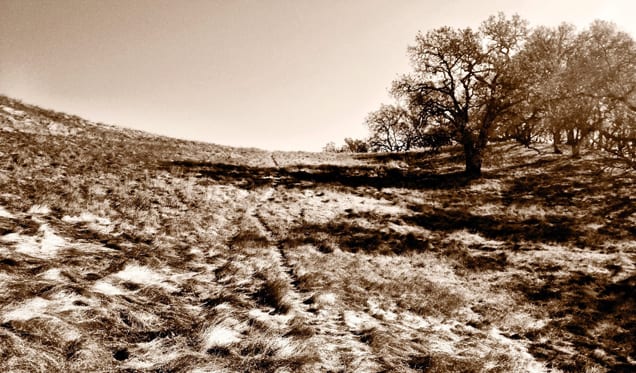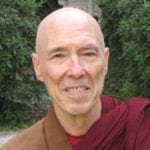In my own practice, I began to reflect on the Dharma principle of equanimity which was deeply enriched for me by Guhyapati and Alex Swain of the ecodharma centre in Spain in their offerings in session three of the EcoSattva Training. Through those presentations and other articles on our site, I came to see the potential of equanimity, in the context of the Bhramha Viharas, “Divine Abodes,” to not only provide guidance but energize and inspire my response to moments such as these.
Heart Alchemy
I think of it as a kind of energy physics wherein equanimity represents not just the last but the culmination of the four “divine abodes” or heart-practices. The raw energy of Metta, or unconditional friendliness, radiates outward and this kind, sensitive regard, upon contact with joy or sorrow, resonates. The twin forms of resonance with experience are compassion (resonance with suffering) and sympathetic joy (resonance with joy). Equanimity is the continuation of this resonant energy as it unifies, balances and integrates wise understanding (such as impermanence, inherent dissatisfaction or emptiness).
In this heart-alchemy, the four practices inform and balance one another—for the risk in Metta alone is that, in its beautiful universality, it remains diffuse and ungrounded. Likewise, the risk we face in authentically resonating with the experience of joy or sorrow is that we lose ourselves to it, falling into despair or manic euphoria. Finally, without Metta and the connecting practices, the wisdom of equanimity is uninformed, immature, abstract, and even aloof or indifferent. As a culmination, equanimity has matured the energy of Metta, while contextualizing and balancing the empathetic responses with wisdom. Facing difficulties like those of the past week, when so much of what we care about is suddenly much more at risk, authentic equanimity enables a way to give ample, caring space to our confusion and concern without transcending or becoming lost in them. Instead of pointing to a way out, true equanimity provides a way through.
We frequently turn to the practice of Metta in difficult times, and that is wise. In the coming days, weeks, and months ahead, it might be worth exploring all four of the heart-practices as a way to thoroughly ground our intention for well-being in real-life experience, while integrating beneficial wisdom. Self-compassion is especially important right now as we need to make room for whatever grief, anger, and fear are present. It can be powerful to experience at once the difficult emotion and simultaneously the loving presence that cares but holds a wider view. Intentional cultivation of joy, for instance with gratitude practices, can also be helpful to remind us that there is so much good in this world. In these hearty times, you might experiment with purposely moving between the four divine abodes to see how they inform, balance and enrich one another.
Beyond Holding
Even authentic equanimity as described above, if it remains exclusively a personal experience, still runs the risk of compliance. For those of us who are part of the systems that cause harm, bearing witness to our own and others’ suffering is necessary but not sufficient for the moral life.
This is where the Mahayana view on the Bodhisattva ideal becomes essential. There are two forms of abuse of power: the overuse of power and its under-use and many, if not most of us, have much more power than we are aware of or put to use. Whether by our resources, race, health, education, relative security, or some combination of these, those of us with sufficient privilege are usually averse to putting our comforts and conveniences on the negotiating table. Yet even in this last week, hate crimes against our Muslim, immigrant, African-American and LGBTQ siblings have already begun. High-level appointments of climate deniers have already been made. While we must give ourselves time to integrate our political reality, we must also come to terms with the spiritual reality that, for most of us, there is no neutral. The Bodhisattva path is decidedly active and perhaps even messy; it doesn’t wait for immediate clarity and certainly not for enlightenment.

Upon the basis of connected equanimity, we might discover that the Bodhisattva’s dedication to engage, to risk, and to change, might emerge quite naturally …. or we might undertake the training to explicitly cultivate it. We can draw courage and inspiration from the renowned Tibetan master Chögyam Trungpa Rinpoche who developed the Shambhala teachings as a “non religious presentation of the most basic of all contemplative practices and the ancient ideal of the sacred warrior, learning to master the challenges of life, both on and off the battlefield.” For your practice, then, consider the mind-training inspired by this understanding crafted by Akuppa John Wigham to forge in each of us a Shambhala Warrior:
The Shambhala Warrior Mind-Training
- Firmly establish your intention to live your life for the healing of the world. Be conscious of it, honor it, nurture it every day.
- Be fully present in our time. Find the courage to breathe in the suffering of the world. Allow peace and healing to breathe out through you in return.
- Do not meet power on its own terms. See through to its real nature – mind and heart made. Lead your response from that level.
- Simplify. Clear away the dead wood in your life. Look for the heartwood and give it the first call on your time, the best of your energy.
- Put down the leaden burden of saving the world alone. Join with others of like mind. Align yourself with the forces of resolution.
- Hold in a single vision, in the same thought, the transformation of yourself and the transformation of the world. Live your life around that edge, always keeping it in sight.
- As a bird flies on two wings, balance outer activity with inner sustenance.
- Following your heart, realize your gifts. Cultivate them with diligence to offer knowledge and skill to the world.
- Train in non-violence of body, speech and mind. With great patience to yourself, learn to make beautiful each action, word and thought.
- In the crucible of meditation, bring forth day by day into your own heart the treasury of compassion, wisdom and courage for which the world longs.
- Sit with hatred until you feel the fear beneath it.
- Sit with fear until you feel the compassion beneath that.
- Do not set your heart on particular results.
- Enjoy positive action for its own sake and rest confident that it will bear fruit.
- When you see violence, greed and narrow-mindedness in the fullness of its power, walk straight into the heart of it, remaining open to the sky and in touch with the earth.
- Staying open, staying grounded, remember that you are the inheritor of the strengths of thousands of generations of life.
- Staying open, staying grounded, recall that the thankful prayers of future generations are silently with you.
- Staying open, staying grounded, be confident in the magic and power that arise when people come together in a great cause.
- Staying open, staying grounded, know that the deep forces of Nature will emerge to the aid of those who defend the Earth.
- Staying open, staying grounded, have faith that the higher forces of wisdom and compassion will manifest through our actions for the healing of the world.
- When you see weapons of hate, disarm them with love.
- When you see armies of greed, meet them in the spirit of sharing.
- When you see fortresses of narrow-mindedness, breach them with truth.
- When you find yourself enshrouded in dark clouds of dread, dispel them with fearlessness.
- When forces of power seek to isolate us from each other, reach out with joy.
- In it all and through it all, holding to your intention, let go into the music of life.
- Dance!






